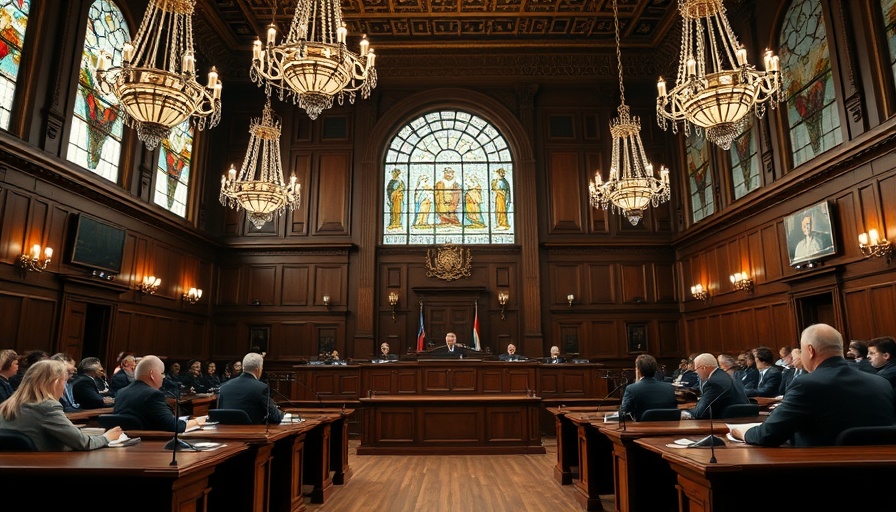
Trump's Push for Coal: A Response to Energy Demands
President Trump's determination to revive the coal industry is significantly influenced by the rising energy demands generated by data centres, particularly those powering advanced AI systems. In this context, Trump's administration has issued executive orders to keep coal-fired power plants like the JH Campbell plant in West Olive, Michigan, operational, reversing years of progress towards reducing coal dependency. About to close in May, the Campbell plant is now being supplied with coal again, responding to claims from the administration about an energy emergency in the region.
Fears Over Climate Progress
While Trump emphasizes the necessity of coal to bolster energy security, many environmental advocates are alarmed that such policies could reverse decades of progress in combating climate change. Jan O’Connell from the Sierra Club argues that the Campbell plant order could set a worrying precedent. “We’re afraid it’ll be a domino effect,” she notes, expressing concerns over the potential for extending the operational lifespans of aging coal plants.
Implications for Renewable Energy Initiatives
The resurgence of coal not only threatens the clean energy agenda but raises questions about the future of investment in renewable energy. Jason Walsh, Executive Director of the BlueGreen Alliance, suggests that instead of providing coal-producing communities with the support they need for a just transition, the Trump administration is offering “denial, false hope, and… a lot more pollution.” This sentiment is echoed by energy experts who warn against the reliance on outdated energy sources.
The Demand for Data Centres and Coal
The energy demands of data centres have surged tremendously. Reports from the International Energy Agency indicate a 12 percent rise in energy demand from such facilities between 2017 and 2024, with projections suggesting it could double by 2030. This is largely due to the exponential growth of AI technologies, which require significant electricity to operate effectively. In light of this, the Trump administration is defending its support for coal by arguing it ensures reliable access to electricity.
A Declining Coal Industry’s Reality
Despite the administration’s efforts, the coal industry has seen a significant decline over the past two decades, with almost 75 percent of coal plants either retired or set to retire by 2030. Environmentalists argue that extending the life of these plants jeopardizes not only climate goals but also the economy as the world increasingly pivots towards renewable energy. The environmental impact of coal is well-documented, as it contributes to increased carbon emissions and air pollution, countering efforts to build sustainable cities and promote renewable energy.
Potential Economic Consequences
As states like Illinois, Georgia, and West Virginia consider delaying coal plant retirements, the repercussions could lead to heightened resistance to cleaner, sustainable energy alternatives. This could adversely affect local economies, as investments in renewables are delayed or diverted towards maintaining old coal plants. Additionally, this shift raises the ecological footprint of energy production in these regions, degrading the natural resources and undermining environmental conservation efforts.
The Call for Sustainable Solutions
Communities and advocates emphasize the importance of adopting sustainable practices that align with global climate action goals. As the discussion around data centre energy needs continues, it is vital to find a balance that relies on sustainable development practices. Transitioning to renewable energy not only addresses energy demands but also minimizes the carbon footprint and contributes to a healthier environment.
If you are committed to a sustainable future, consider advocating for clean energy solutions and prioritizing investments that support green initiatives. Educating yourself and your community on these issues is the first step towards fostering environmental stewardship.
 Add Row
Add Row  Add
Add 



Write A Comment